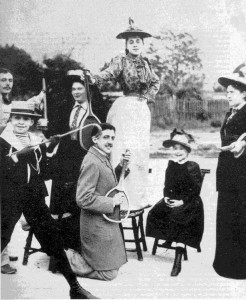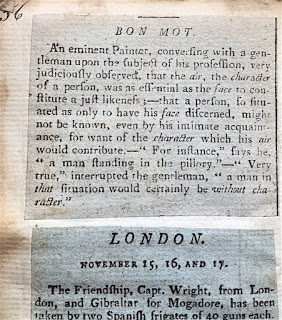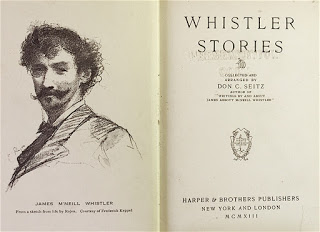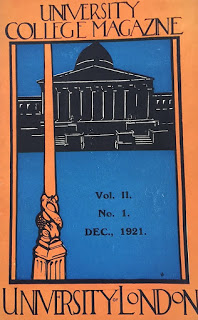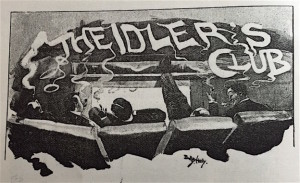 Found in a bound volume of The Idler Magazine (Chatto & Windus, 1892. Volume 1, February to July. pp 231 – 232) this piece by regular contributor Robert Barr. The Idler was edited by Barr with Jerome K Jerome. It ran from 1892-1911. This piece was found in the always interesting section ‘The Idler’s Club’, fairly heavy on the whimsy but never unamusing– see an earlier jot where, among other things, Barry Pain proposed that ‘..amateur dramatics would be much improved if performed in total darkness and thus they would also be able to avoid paying a licence fee…’ This piece by Robert Barr has a curiously modern feel about it (if you substitute the internet for the telegram) and the idea of being 12 miles from a lemon echoes the current city dweller’s fear of being more than ‘four miles from a latte..’
Found in a bound volume of The Idler Magazine (Chatto & Windus, 1892. Volume 1, February to July. pp 231 – 232) this piece by regular contributor Robert Barr. The Idler was edited by Barr with Jerome K Jerome. It ran from 1892-1911. This piece was found in the always interesting section ‘The Idler’s Club’, fairly heavy on the whimsy but never unamusing– see an earlier jot where, among other things, Barry Pain proposed that ‘..amateur dramatics would be much improved if performed in total darkness and thus they would also be able to avoid paying a licence fee…’ This piece by Robert Barr has a curiously modern feel about it (if you substitute the internet for the telegram) and the idea of being 12 miles from a lemon echoes the current city dweller’s fear of being more than ‘four miles from a latte..’
Some years ago, somebody* wrote a book entitled ‘Twelve Miles from a Lemon’. I never read the the volume, and so do not know whether the writer had to tramp twelve miles to get the seductive lemon toddy, which cheers and afterwards inebriates, or the harmless lemon squash, which neither cheers nor inebriates. I think there are times when most people would like to get twelve miles away from everything – including themselves. I tried to put a number of miles between me and a telegraph instrument, and flattered myself for a time that I had succeeded. I dived into the depths of the New Forest. The New Forest is popular in summer, deserted in winter, and beautiful at any season. I found a secluded spot in the woods, and thought I was out of reach of a telegram. I wish now I had not got so far away from the instrument. The boy came on horseback with the message. It was brief, coming well within the sixpenny range, and it stated tersely that the printer was waiting for these paragraphs. The boy said calmly that there would be fifteen shillings and sixpence to pay for the delivery of that yellow slip of paper. Continue reading

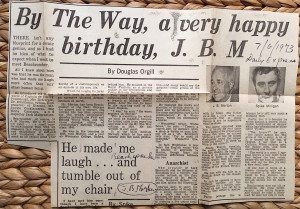

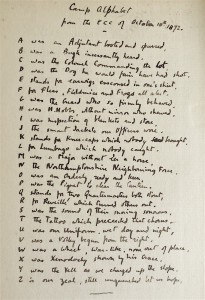 Found in Herbert Kynaston. A Memoir. (Macmillan, 1912) an acrostic for a bazaar to raise money for a home for ‘Friendless Girls’ (below). The book has the ownership signature of F.E. Balfour (1922). This is almost certainly
Found in Herbert Kynaston. A Memoir. (Macmillan, 1912) an acrostic for a bazaar to raise money for a home for ‘Friendless Girls’ (below). The book has the ownership signature of F.E. Balfour (1922). This is almost certainly 
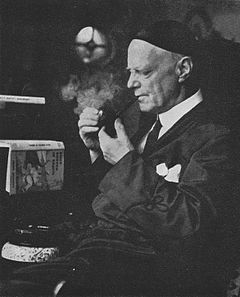
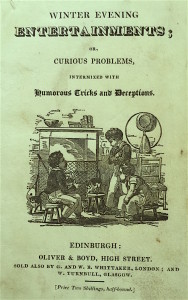

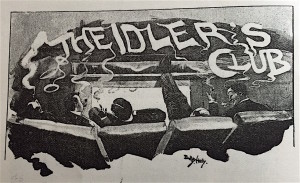
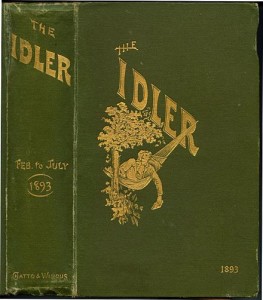
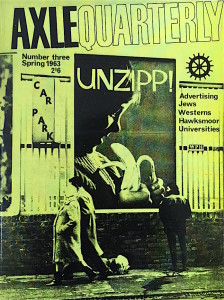
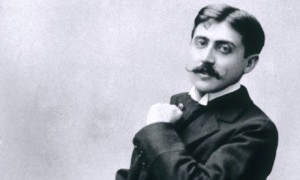 This the last part of a two part posting. See
This the last part of a two part posting. See 